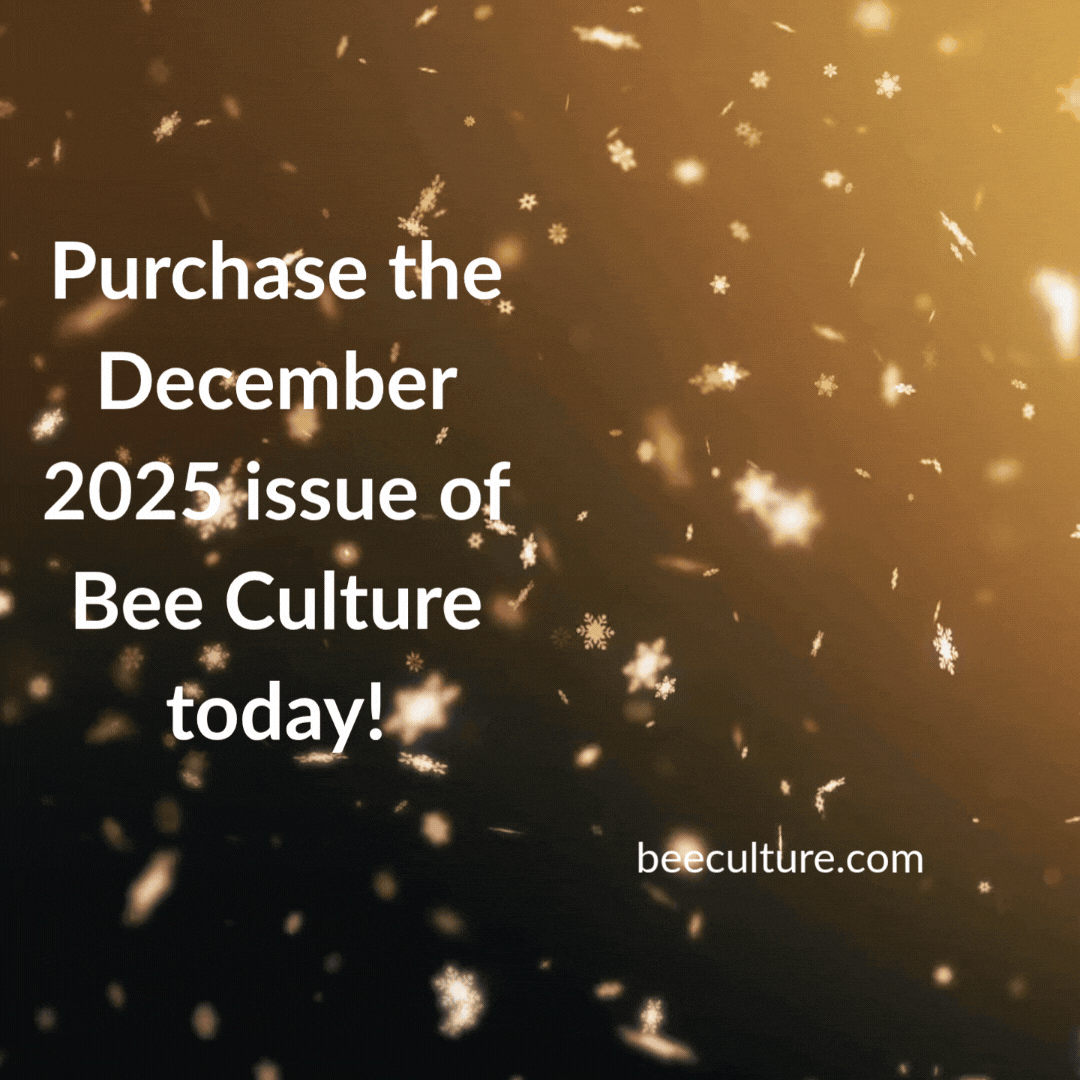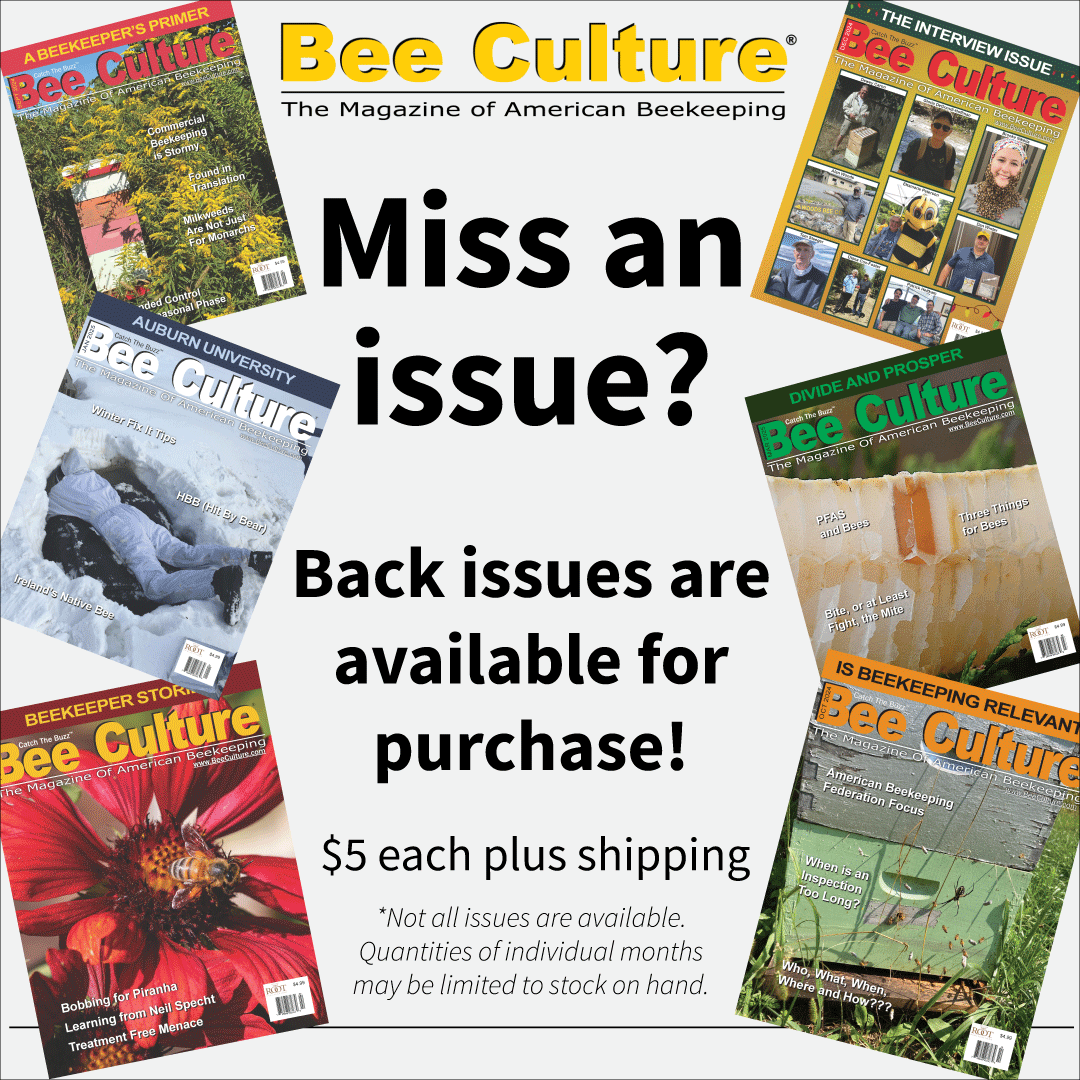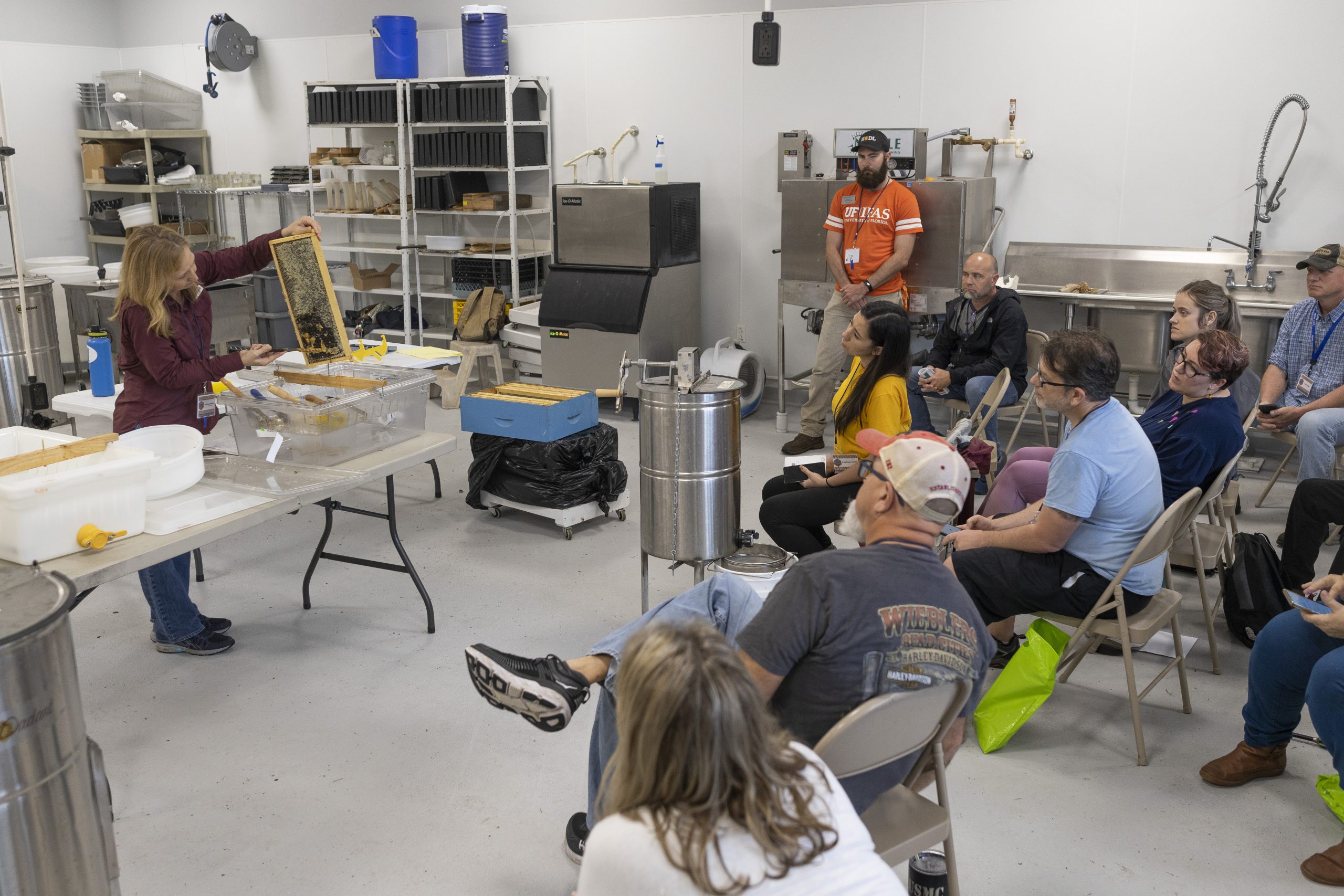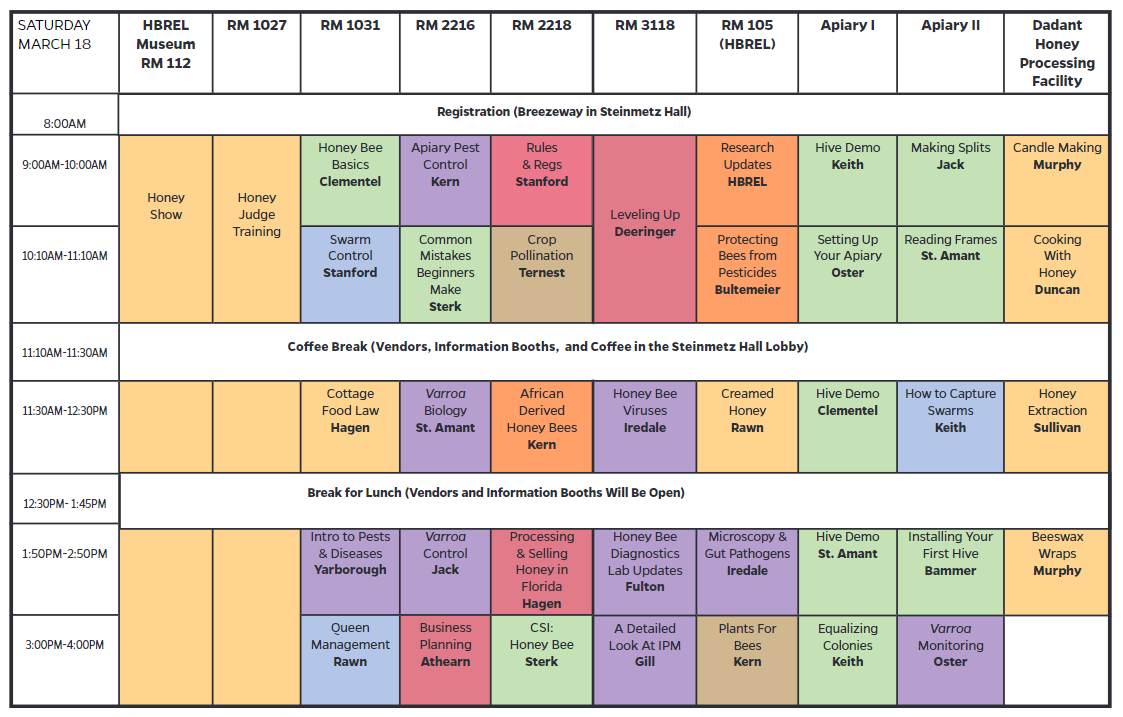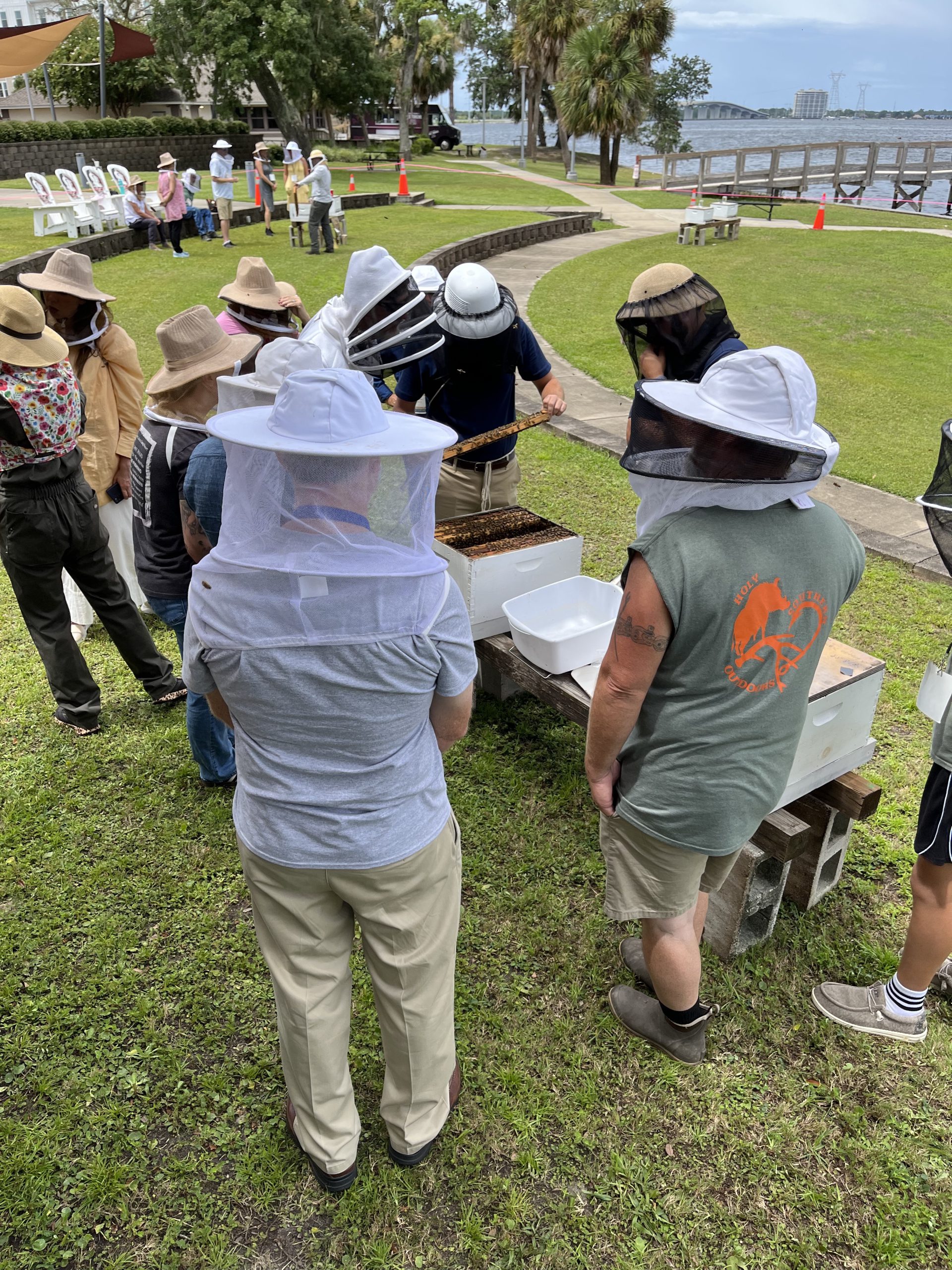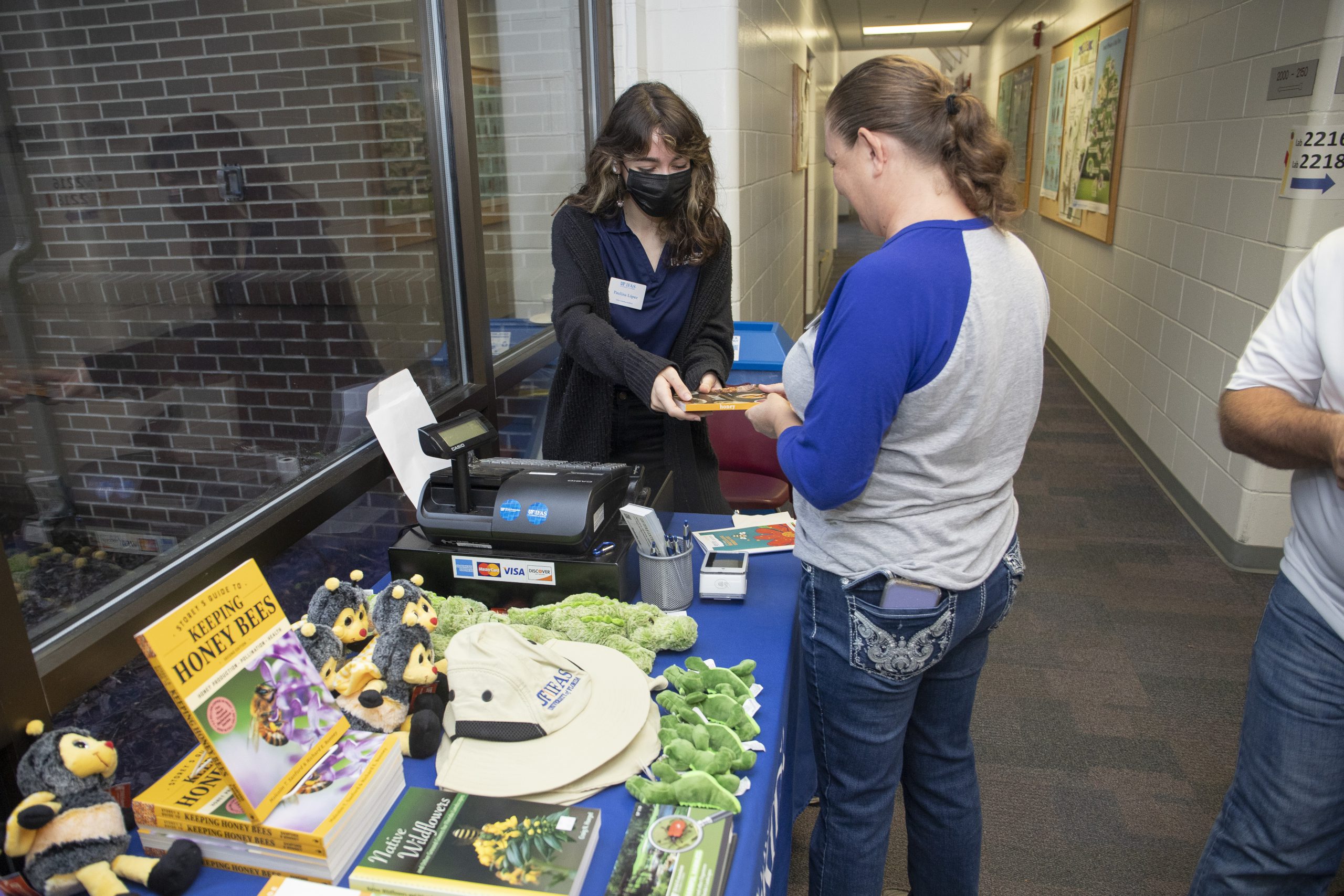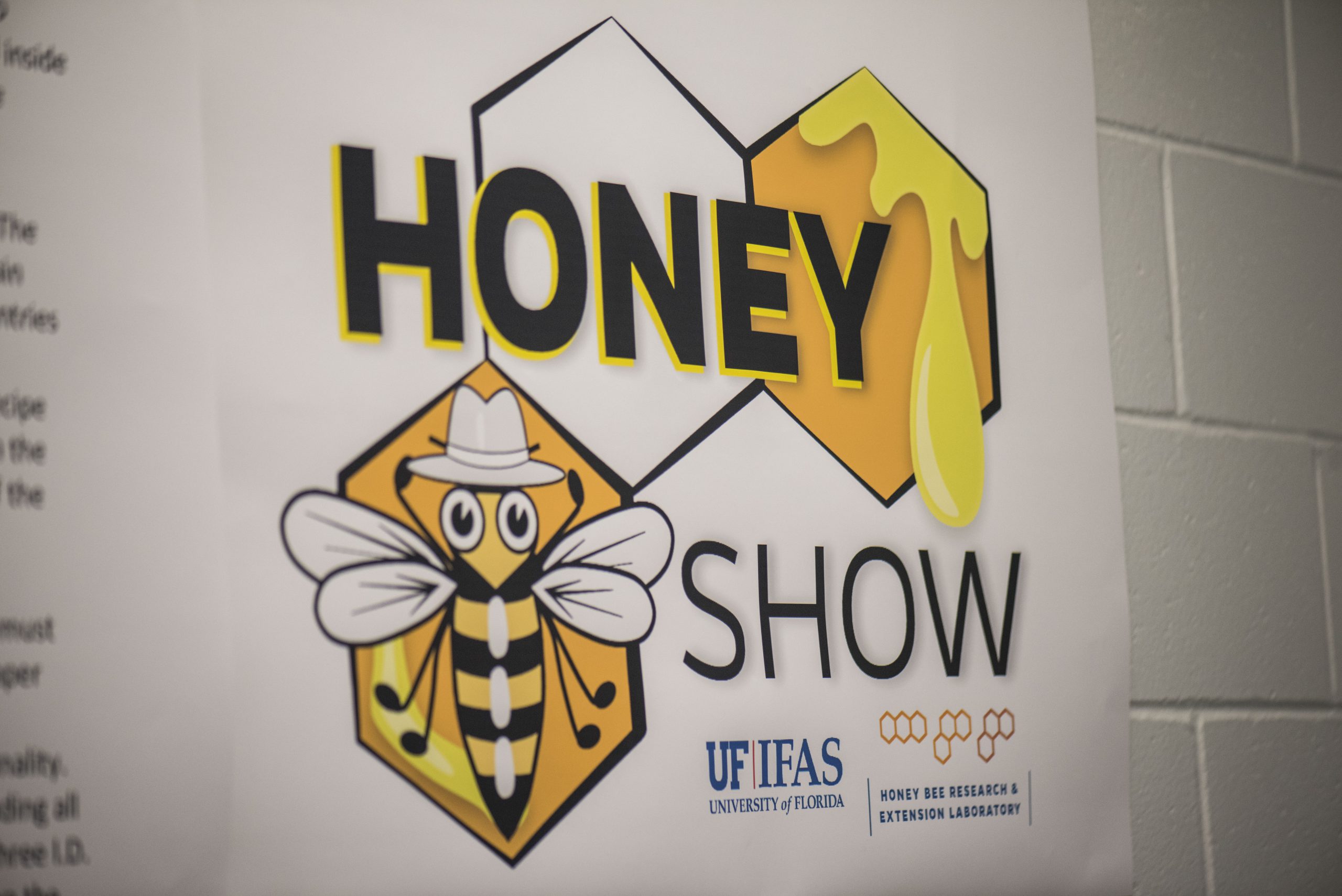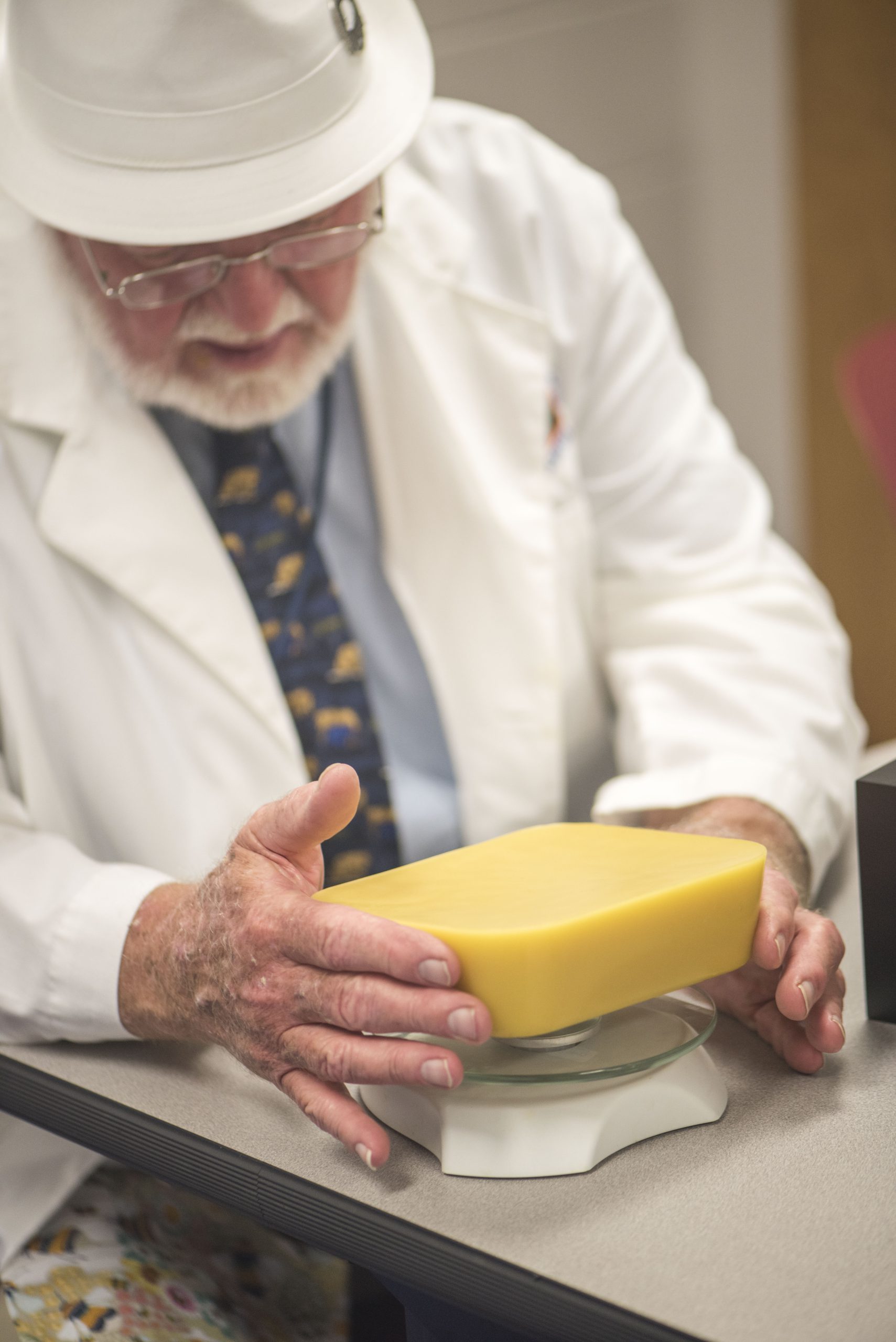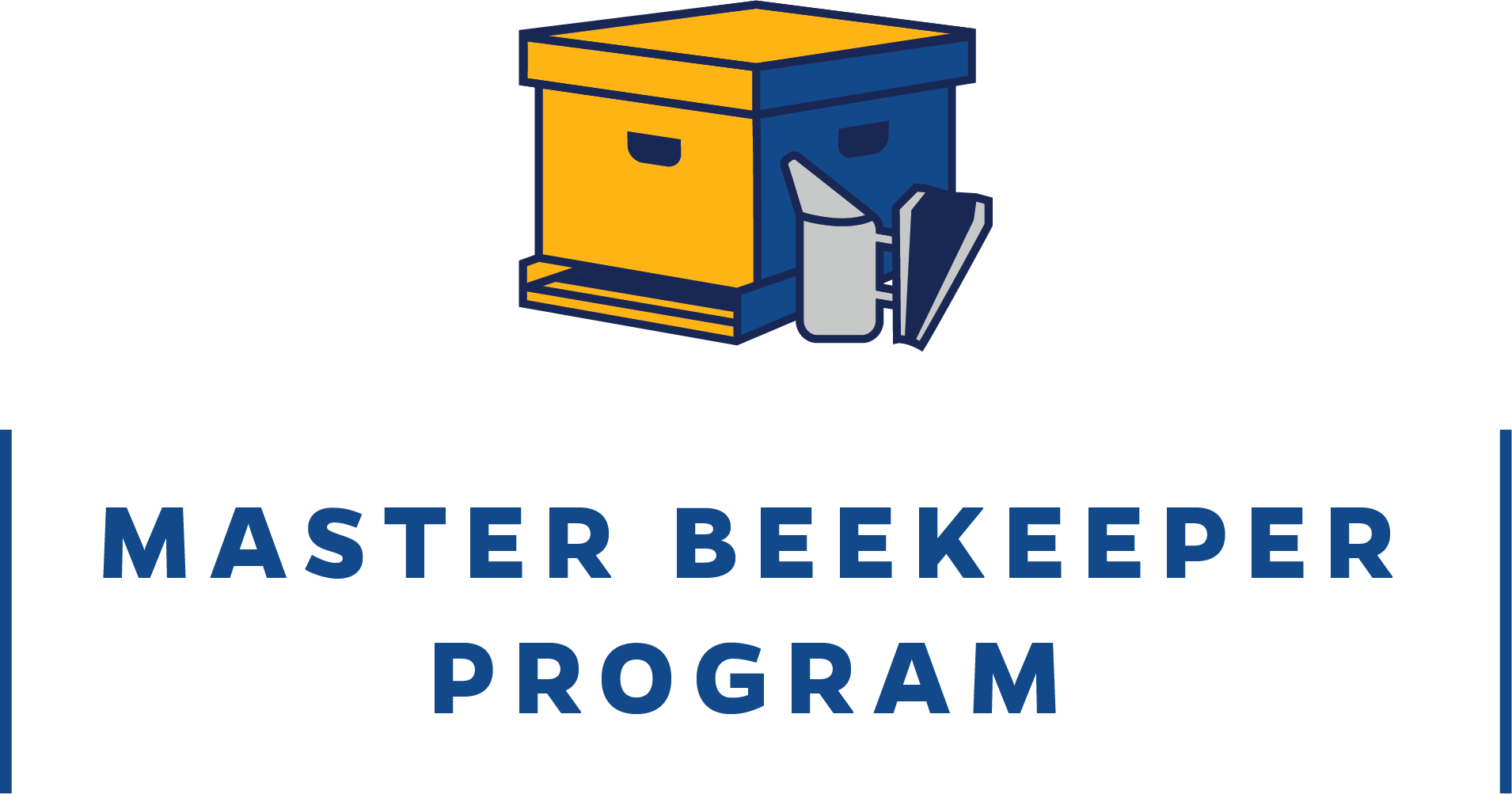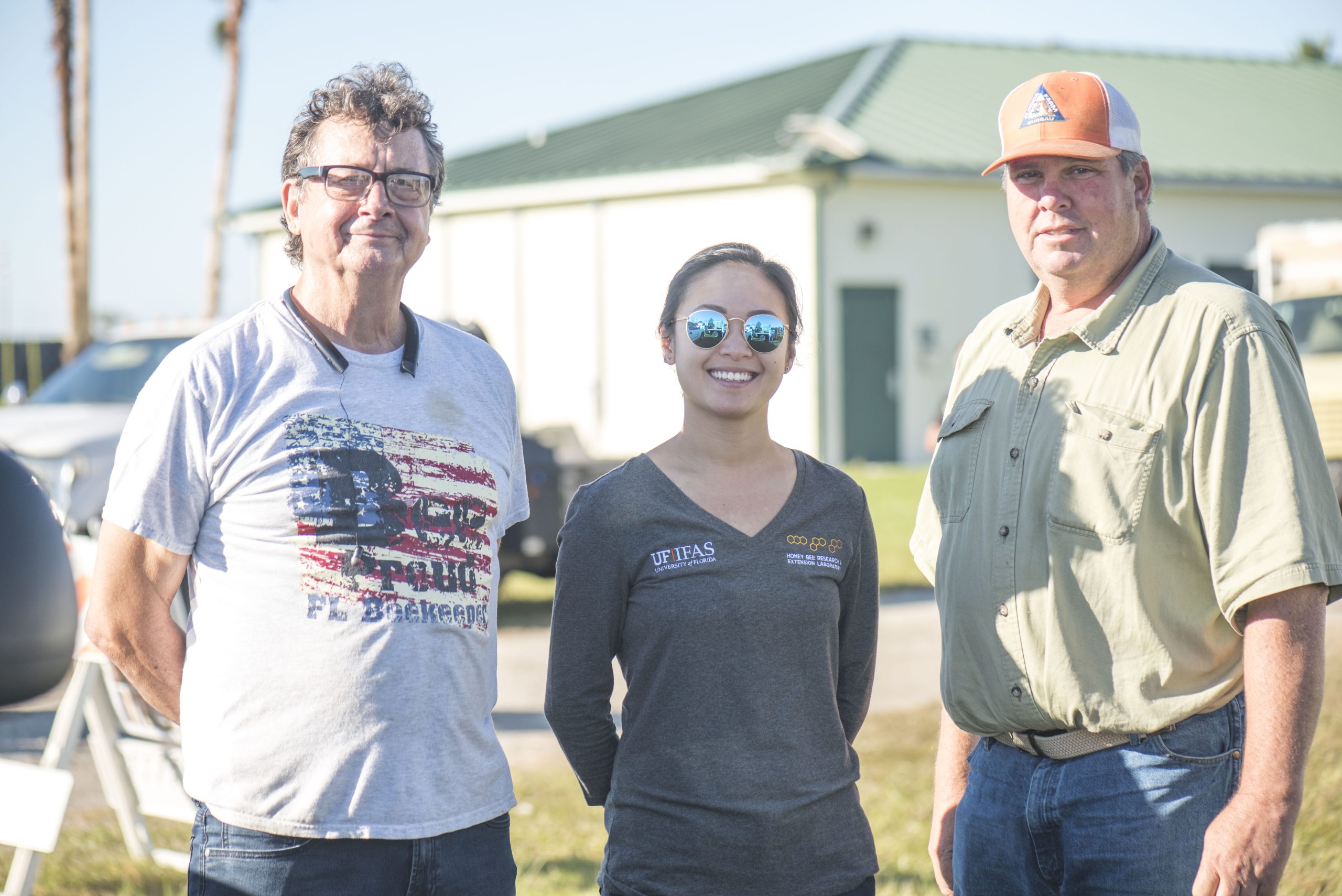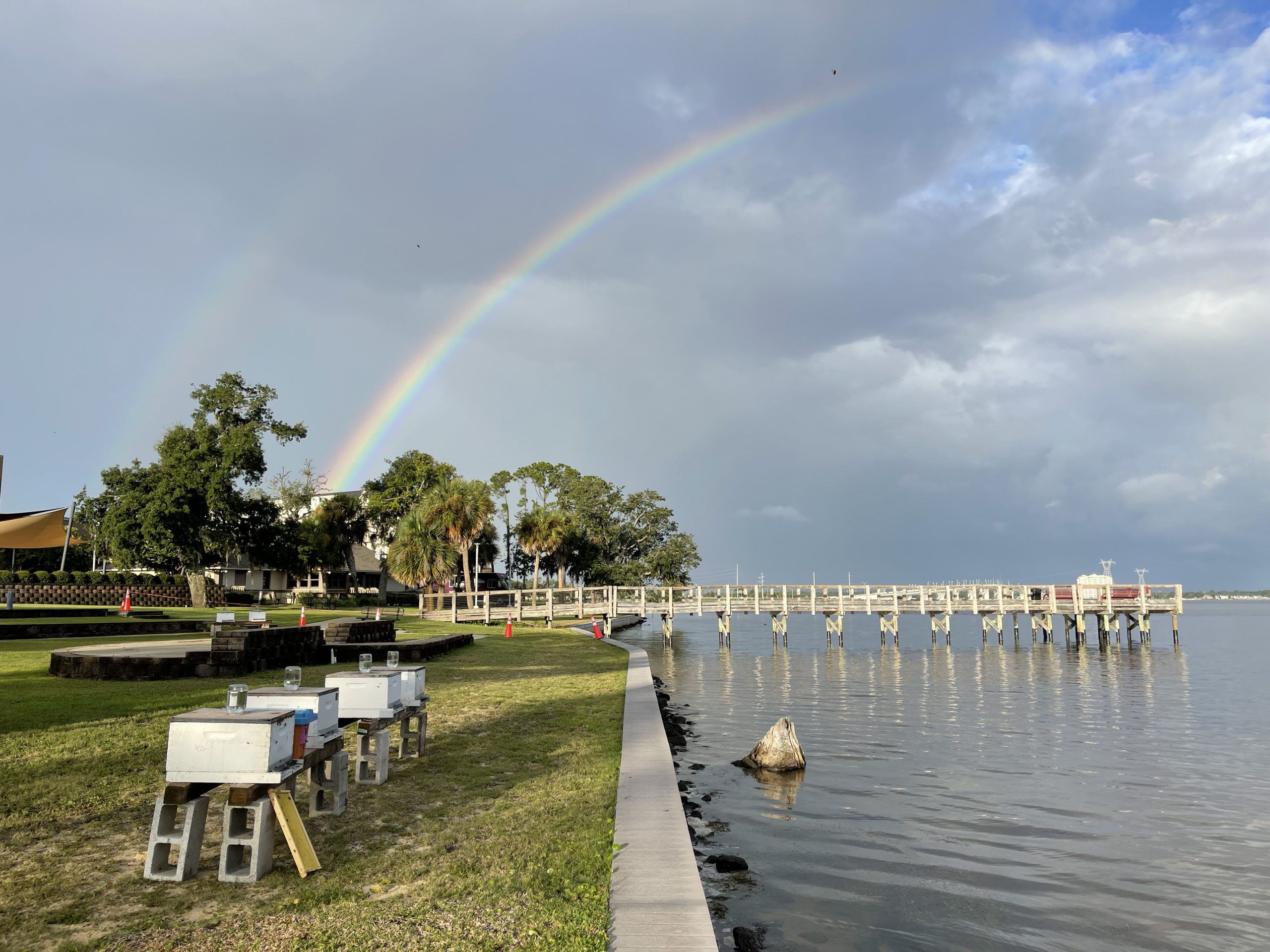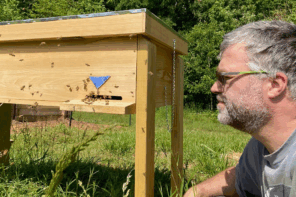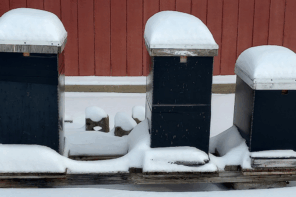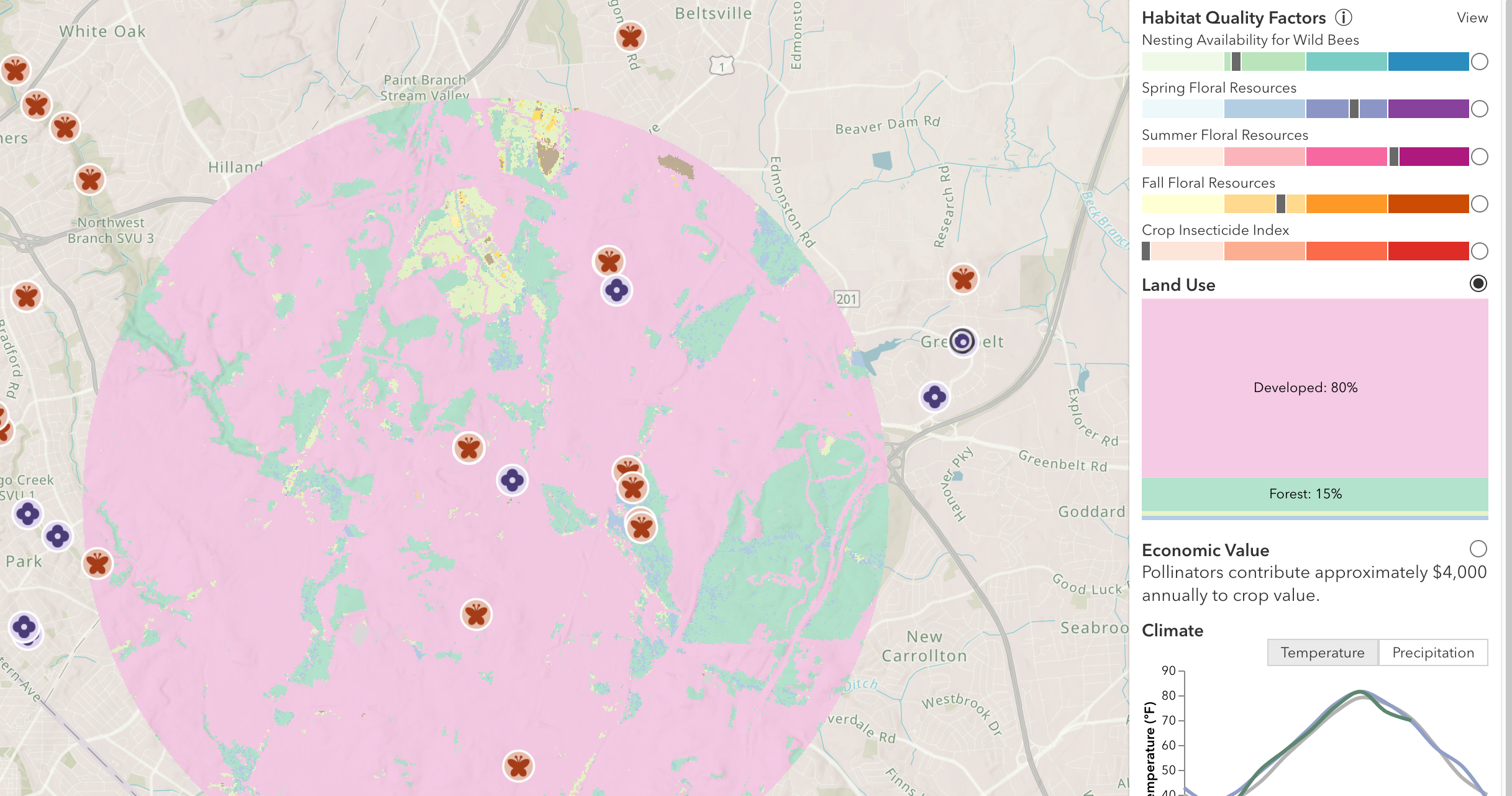From the University of Florida Honey Bee Research and Extension Laboratory
Extension Programs
Louis Dennin & Amy Vu
January: Overview of the HBREL at UF
February: Honey Bee/Beekeeping Teaching Programs
March: Research on Honey Bees
April: Apiculture Extension (Part 1)
May: Apiculture Extension (Part 2)
June: Roles in a Typical Honey
Bee Lab
July: How Labs are Funded
August: The Lab’s Physical
Infrastructure
September: What it Take to Run a Laboratory Effectively
October: Professional Development
in the Lab
November: Members of the HBREL Team and What They Do
December: The HBREL’s Most
Notable Successes/Contributions to the Beekeeping Industry
The following is a continuation of an article authored by Amy Vu and published in the April 2023 edition of Bee Culture, wherein which she defined and discussed the role extension programs play as a part of American land grant institutions. The goal of this sequel article will be to present you all with the specific honey bee extension programs that we have underway here at the University of Florida, and we hope that by reading about what we do here you might be inspired to learn more about the extension programs in your area.
My name is Louis, and I work as an Extension Coordinator for the University of Florida Institute of Food and Agricultural Sciences (UF/IFAS). I want to start by briefly going over what it means to be an Extension Coordinator, but if you would like a more thorough introduction to extension, please see the aforementioned article in the prior edition of Bee Culture. When you imagine institutions of higher education, you’re likely to picture two types of people almost immediately: professors, which are experts that oversee research and provide classes, and students, who are aspiring experts studying under the tutelage of the professors. Throughout the lifespan of a university these two groups form a sort of cyclical relationship, where information multiplies as it is passed down again and again from professors to students, refined by age like a fancy cheese. For some subjects in academia this cycle is meant to last indefinitely, spurring forth the endless pursuit of knowledge for knowledge’s sake. Some subjects, however, require this cycle to open up and allow these resources to escape beyond the walls of the university.
Extension personnel work to facilitate that outward flow of knowledge. We extend the reach of a university’s information to the people who need it. I work with the UF/IFAS Honey Bee Research and Extension Laboratory (HBREL) on our honey bee extension programs, which means finding ways to bring the breakthroughs and expertise of researchers to the people out there who are managing, dealing with or teaching about honey bees! In this article, I’d like to tell you all about some of our current extension programs here at the UF/IFAS HBREL, and how we believe these programs will make a difference in the lives of bees, beekeepers and our communities.
(If you’d like to learn more about any of the following topics, please see our website at: www.ufhoneybee.com)
Two Bees in a Podcast
Sometimes the most important conversations happen in the most casual moments. An office chit chat by the water cooler, gossip on the school bus or even just a few passing remarks between strangers while standing in line can bring new perspectives to light. Podcasts, which are essentially web-based radio talk shows, are a great way to expose ourselves to engaging banter even when we’re alone. They allow listeners a chance to hear people give their thoughts in a format that is looser and more conversational than in a scripted medium, and these days great podcasts exist for virtually any genre or topic you can think of.
The UF/IFAS HBREL has been producing a podcast show called Two Bees in a Podcast. Episodes were first released in January 2020. We have over one hundred and thirty episodes available to be freely listened to online. The show, hosted by Ms. Amy Vu and Dr. Jamie Ellis, aims to provide beekeepers and other honey bee enthusiasts a place to listen to apicultural advice, research and stories from a long lineup of special guests. Our show strives to showcase a diverse stock of topics, from basic beekeeping practices to highly specialized scientific research.
Most episodes of Two Bees in a Podcast feature an interview with a guest speaker, management tips from Dr. Ellis and a Q&A segment where we answer questions submitted by our listeners. Beekeepers come from all different walks of life, and every apiary is unique, so there is no shortage of new ideas and difficult questions to spark fascinating discussions about our favorite little insects.
If a beekeeping radio show sounds like something you might enjoy, we invite you to tune in by visiting www.ufhoneybee.com, or by tuning in to any podcasting app on your smart device! Podcasts are an excellent way to keep your mind engaged in something you love while doing chores, traveling or even while working your hives.
Bee College
Bee College is a semiannual beekeeping workshop run by the UF/IFAS HBREL. It is a two-day event that welcomes beekeepers of all levels to come and grow together, from sideline or commercial beekeepers to curious fresh faces. So, how exactly does Bee College work, and how do we aim to best serve those who attend?
Attendees at Bee College receive a program with a timetable of classes being taught by an expert team of instructors. These classes all occupy sixty-minute class periods, and each attendee can create a schedule for themselves that suits their needs and interests. The event is organized in much the same way a conference is organized, giving attendees freedom in what seminars they wish to engage with. Beginners have access to classes like “How to Light a Smoker” and “Setting Up Your Apiary,” while experienced beekeepers can attend classes covering the latest research happening at our lab or learn how they can expand a hobbyist operation into a business. Some classes are held inside of classrooms while others will be out in an apiary, depending on the topic and the instructor. So, whether someone wants to be outside all day with the bees, listening to lectures from honey bee experts in a classroom environment or a little bit of both, we try our best to make sure every attendee can create a schedule that makes the most of their visit. (Figures 1, 2 – next page, 3)
In addition to our lectures and demonstrations, there is one other invaluable, amazing component of Bee College, and that is, of course, the beekeepers themselves. One of my favorite parts of Bee College is looking around at the groups of people chatting in between classes. People who, in another setting, would be perfect strangers with little in common with one another enjoying a coffee and talking as if they were lifelong friends, all thanks to this strange and wonderful love of honey bees they share. I love imagining how much information is being shared in those little chat circles. New beekeepers receiving advice, veterans swapping stories about their apiaries and completely off-topic discussions that bring the ever-interesting community of beekeepers we have closer together.
Bee College also serves as a space to promote the business and craftsmanship of beekeeping. (Figure 4) We have vendors register to sell their wares and answer questions, carrying apicultural items like honey, Varroa treatments, beeswax products, equipment and more! Sometimes these vendors split their time between selling their wares and teaching classes, passing along the tricks of the trade to people eager to learn. Bee College also serves as the venue for our semiannual honey shows, which are contests for beekeepers where certified Florida honey judges grade their bee product entries. This includes things like beeswax, mead, beekeeping gadgets, baked goods and of course, honey! (Figures 7 & 8) Earning high marks in a honey show is a great achievement for beekeepers, as it takes a lot of talent and skill to meet the high standards of these contests.
As I mentioned before, Bee College is held semiannually; here at our lab in Gainesville during the Spring, and again in another city in the Summer. Currently, our Summer Bee Colleges change location each year, alternating between northern Florida and southern Florida to help make it more accessible to those who live far from the University of Florida’s main campus. Our next Bee College event will be held on August 18 & 19, 2023 in Davie, Florida.
The Master Beekeeper Program and Online Learning
You don’t need to travel far participate in our honey bee extension programs, however. In fact, to provide the best education we can to as many people as possible, the UF/IFAS HBREL has been iterating and improving upon a catalog of online course materials for beekeepers around the world.
Chief among these online courses is our Master Beekeeper Program (MBP) (Figure 5), which is a detailed and rigorous series of coursework paired with real-life experience requisites, designed to provide new beekeepers with a guide to get started and to support the continued growth of experienced beekeepers. The MBP is divided into four levels, which can be thought of kind of like the belts in martial arts. Each level has its own requirements that must be completed, and upon each advancement to a new level, participants are awarded a certificate and patch to signify their accomplishments. These levels are Apprentice Beekeeper, Advanced Beekeeper, Master Beekeeper and Master Craftsman. I won’t go into the nitty-gritty of what each rank involves in this article, but completing even just the Apprentice Beekeeper program alone gives new beekeepers a great foundation of honey bee biology, beekeeping techniques, and problem-solving skills to get them started.
In addition to the aforementioned MBP, our online catalog features an always-expanding library of what we call “bee-Learning” short courses, which are individually packaged lessons for those who really just want to study the ins and outs of a specific topic. The topics covered by our bee-Learning catalog range from entry-level topics like honey bee biology and beekeeping equipment to more specialized lessons like overwintering strategies and the methods of rearing queens.
Not sure if an electronic learning platform is right for you? We have one course that is open to enrollments free of charge! It is a bee-Learning course titled Is Beekeeping Right for You?, which is always there for anyone curious about our online interface, or is on the fence about becoming a beekeeper. Anyone can freely join anytime and see what they can expect from our other online offerings.
On that note, I should mention that all of our online classes can be joined at any time (with the exception of upper levels of the MBP, which have prerequisite courses) and can be completed at the participant’s own pace. There is no prescribed “class time” that participants must attend, and all the lectures and materials can be worked on at any time of day. The lectures for these classes are provided by some of the University of Florida’s top honey bee experts, including Dr. Jamie Ellis, Dr. Cameron Jack and our Instructional Designer Ms. Mary Bammer, who currently maintains all of the online courses, grades the written and video assignments and actively provides support to those enrolled. So despite not actually being in our classroom, beekeepers who engage with our online materials are in good hands.
HBREL Website and Social Media
Also an online resource for beekeepers, our official website (ufhoneybee.com) is kept up to date with a lot of useful links and guides. We have links to all of Florida’s county-level beekeeper clubs in one place, so people who would like to seek out a beekeeping community in their area have a way to find a group that is accessible to them. You can also find articles about pollination, pests, diseases, best management practices and more! It is our hope that our website can act as a versatile, 24/7 resource to anyone with honey bee questions.
We also maintain a social media presence on Instagram, Facebook and Twitter, where we post announcements, honey bee facts, photos from our lab and a monthly management calendar for Florida beekeepers. The calendar is accompanied by a post on our blog, which goes into detail about recommended best management practices for that month in Florida. You can find us on social media @UFHoneyBeeLab, and you can find a link to our blogs on our website.
Train the Trainer
Here in Florida, there are 67 counties and only one UF/IFAS HBREL. That said, part of our Extension efforts focus on supporting County Extension Agents to hold their own beekeeping workshops in their communities. Since Florida has over 5,000 registered beekeepers, there is plenty of opportunity for Extension Agents to provide beginner classes, or build networks with commercial beekeepers to help with rules, regulations and necessary permits to keep businesses afloat. Twice a year, UF/IFAS HBREL provides in-service trainings for UF/IFAS Extension Agents interested in starting a honey bee program in their county.
A team called the Honey Bee Extension Education Team (HBEET) was also created to represent each district in Florida. These individuals not only meet monthly to discuss commercial beekeeping needs, how to provide resources and ways to understand the industry better, but they also act as a resource to County Extension agents who may have immediate questions related to where they are in Florida. Together, the UF/IFAS HBREL and HBEET provide resources to Florida beekeepers and beyond.
Collaborations
As extension agents that specialize in honey bees, one of our jobs is providing support to other honey bee health education efforts in the state. We aren’t the only ones working towards bettering the lives of Florida’s beekeepers, and we take pride in collaborating with some other incredible organizations.
We collaborate with the Florida State Beekeepers Association (FSBA), who serve as the representative body for the beekeepers in Florida. To list just some of the work that they do, the FSBA works towards protecting the legislative rights of Floridian beekeepers, raises funds to aid beekeepers impacted by hurricanes and were an instrumental part of securing the funding and approval to get the HBREL built in the first place. They lobbied to have a dedicated honey bee research facility installed on UF’s campus because they so generously believed in the value of the work we’re now able to do, and our lab owes a great deal to them for that. Because everything we do was made possible by their support, we take great pride in being able to work with them. We share an annual research update with their members at the yearly FSBA conference, giving their members a chance to hear about the incredible amount of science and education we are able to turn out from this facility. (I’ll leave it to my colleagues to go into more detail about all of that in other installments of our lab highlights in future articles.) Our lab also actively participates in some of FSBA’s projects. For example, Amy Vu, who leads the extension efforts at the HBREL, worked many long days partnering with FSBA’s initiative to aid beekeepers in the wake of 2022’s Hurricane Ian, which was a devastating event for beekeepers living in and visiting Florida last October. (Figure 6)
Another incredibly important collaborative effort of ours is working with the Florida Department of Agriculture and Consumer Services (FDACS) to make strides towards bettering honey bee health. In the state of Florida, it is legally required that beekeepers register themselves with the state through FDACS so that their colonies can be inspected by qualified state apiary inspectors. The FDACS office that oversees these registrations and inspections is actually located right beside our lab, despite technically being a separate entity from the university. This proximity allows us to meet together frequently and discuss the current challenges facing Florida’s beekeepers. We consider assessing the needs of our stakeholders to be a crucial part of the extension process; the first step towards creating resources that can help our beekeeping community thrive. FDACS now has an active honey bee diagnostics lab, which was something our lab helped them establish and a great example of one such resource.
Our lab also plays a role in two very exciting grants: The USDA NIFA Beginning Farmer and Rancher Development Grant and the USDA NIFA Veterinarian Training Grant. The former is an initiative to help new beekeepers 1) develop a business plan, 2) diversify their value-added product making skills, 3) market in a digital era and 4) learn the rules and regulations of hiring employees, with the latter being a collaborative effort between Michigan State University, The University of Florida and Texas A&M University to train veterinarians in honey bee medicine. The two grants were both awarded in 2022, and they represent a lot of very promising new resources and work to be done in the very near future.
Finally, we also assist with finding speakers for events at schools, honey bee clubs/associations and other educational venues. Many of these speakers come from our Master Beekeeper Program, which requires members to perform public service to achieve the Advanced Beekeeper rank or higher. This entails engagements like tabling at events or lecturing to audiences. These MBP participants are located all over the state (with some in other parts of the country and even other parts of the world), and their participation in the program allows us to expand our opportunities to facilitate speaking events in vastly more cities than our lab would be able to cover on its own.
Communications
The last extension service I would like to discuss with all of you is maybe the least “flashy” part of our job, but an essential part of any well-established extension office and one I feel can be of great use to many of you reading. Extension agents help their clients get in touch with the contacts and resources they need to solve problems facing their operation. We answer phone calls and emails from members of the public that have honey bee-related inquiries, and if we don’t have a good answer for you, our job is to find a specialist who is able to help. As an example, the most frequent call we get is from people who are trying to have a swarm or nest of bees removed from their property. Our job is to connect the individual to find a registered beekeeper that is near them to conduct the removal. In this case, we direct them to the Florida Department of Agriculture and Consumer Services’ updated list of beekeepers and pest control operatives that can legally handle situations like those.
One other example of such a resource is Ask IFAS (previously called EDIS), which is a library of freely accessible articles covering issues that UF/IFAS extension agents have written for the purpose of helping clients. You can read about honey bee biology, African-derived honey bees, find a youth activity book about beekeeping, and much more via Ask IFAS (especially if you’re interested in topics beyond honey bees). Ask IFAS is a powerful tool for all UF/IFAS extension agents, and it’s likely one of the first places we’ll look to find accredited information to answer questions from our clients.
As I mentioned at the beginning of this article, our mission is extending the reach of the university’s resources to the people who can put that information to use in the real world. The common thread between all our extension programs is facilitating the movement of information. Sometimes we do it in a high-production method like a podcast or a two-day workshop, but sometimes it’s just a simple phone call helping someone in need. This isn’t exclusive to beekeeping, either. In the state of Florida, at least, every county has an extension office prepared to assist with all kinds of issues facing the state’s stakeholders. If someone contacts a Florida extension office with a real head-scratcher of a beekeeping question, they may very well be sent our way!
Who knows, a good question like that might end up featured on the Q&A segment of Two Bees in a Podcast, and a really good question may even inspire a new Ask IFAS publication or a Bee College class! We are always trying to keep up-to-date with what beekeepers need to know, and figuring out how best to make that information accessible to them. It is a real honor to serve Florida’s beekeepers, and I hope that by taking the time to read this article you feel I may have been of some service to you, too. Thank you.




